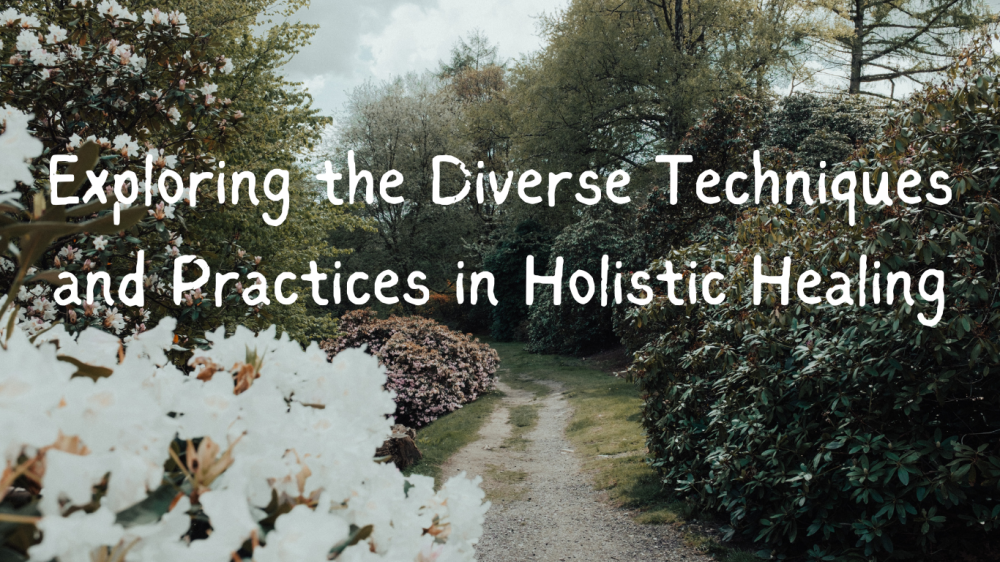
Holistic healing is all about looking at the person as a whole, rather than just treating symptoms or diseases. It’s based on the belief that if any part of us is out of balance, it can affect our overall health. This means addressing the physical, emotional, and spiritual aspects of our lives to promote complete wellness.
One of the key principles of holistic healing is the interconnectedness of body, mind, and spirit. Each element affects the others, so achieving balance among them is crucial. Rather than solely focusing on physical ailments, holistic healing seeks to identify the root causes that might be affecting health, considering emotional and spiritual well-being as part of the healing process.
Holistic and conventional medicine approach health differently. While conventional medicine often focuses on treating symptoms through medication and surgery, holistic healing seeks to empower individuals by fostering lifestyle changes and natural therapies that support self-healing.
As more people seek meaningful improvements in their well-being, holistic approaches are becoming increasingly popular. Many are drawn to its personalized nature and emphasis on long-term health rather than quick fixes.
Common holistic practices like meditation, acupuncture, and naturopathy can offer various benefits. Meditation can reduce stress and improve mental clarity, acupuncture has been used to relieve pain and promote healing, and naturopathy focuses on natural remedies and lifestyle to boost health. These methods highlight the diverse avenues available for those pursuing holistic health as a path to a more balanced life.
Exploring the Diverse Techniques and Practices in Holistic Healing

There’s a wide variety of techniques within the world of holistic healing, each offering its own unique benefits. These modalities aim to nourish not just the body, but also the mind and spirit. Exploring them can reveal ways to achieve a more balanced lifestyle.
Integrative therapies like yoga and Ayurveda have a profound impact on well-being. Yoga combines physical postures, breathing techniques, and meditation to enhance mental clarity and emotional resilience. Ayurveda, an ancient Indian practice, offers personalized dietary and lifestyle guidance based on an individual’s constitution, focusing on balance and harmony.
Reiki and other forms of energy healing focus on channeling the body’s natural energy to promote healing. These practices are grounded in the idea that energy flows through us, and blockages can lead to imbalances. By restoring this flow, practitioners aim to support the body’s innate healing capabilities.
Holistic nutrition emphasizes eating whole, natural foods as close to their original form as possible. This approach can help in preventing illnesses, boosting immune function, and promoting overall vitality. Many find that shifting to a diet rich in fruits, vegetables, and whole grains significantly impacts their energy levels and mood.
Real-life success stories showcase how embracing holistic methods has transformed lives. Individuals report improvements in chronic pain, reduced stress, and enhanced emotional well-being. These examples highlight the potential for holistic practices to bring about meaningful, positive changes.
Understanding these diverse techniques can help you find the right path in your journey toward holistic health. It’s about discovering what resonates with you and seamlessly incorporating those practices into your daily routine for maximum benefit.
Embracing Holistic Healing: A Journey to Wholeness

Incorporating holistic practices into daily life can be an empowering experience. The key is to start small and gradually build new habits that suit your lifestyle. Whether it’s setting aside a few minutes each day for meditation or choosing herbal teas over caffeinated drinks, these changes can add up to make a significant difference.
Living a holistic life can bring profound psychological and emotional benefits. Many find that engaging in simple practices like deep breathing exercises or mindful walks helps them to manage stress better and improve their emotional health. The holistic approach often leads to increased self-awareness, helping individuals to better understand their emotional responses and body needs.
Misconceptions about holistic healing are common, but understanding the truth can set the stage for informed choices. For instance, some people mistakenly believe holistic practices are unscientific. However, many forms, like acupuncture and certain dietary approaches, have been extensively studied and shown to offer health benefits.
Finding qualified holistic practitioners is crucial for a successful journey. It’s important to check credentials and trustworthiness to ensure you receive quality care. Look for practitioners with legitimate certifications and those who make you feel understood and respected.
Developing a personalized wellness plan means listening to your body’s needs and setting realistic goals. Consider blending holistic techniques with conventional treatments for a balanced approach. A personalized plan should focus on your individual health goals and the changes you want to achieve.
By embracing holistic healing, you choose an inclusive path towards comprehensive well-being, aiming for a balanced life that nurtures your mind, body, and spirit.


Recent Comments